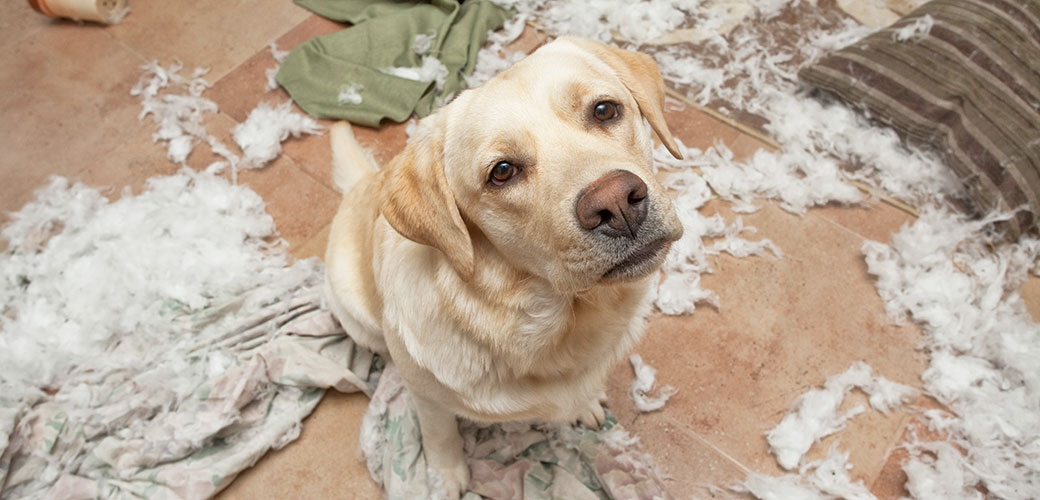Separation Anxiety In Dogs

Many people are unaware that separation anxiety exists in dogs. When we leave home for work, school or any social event, most people will are usually unaware of what their dog gets up to in our absence. Although thanks to technology, there has been the recent advent of dog monitors. which has helped a great deal in helping us keep an eye on them. But this piece of technology has not always been available.
Taking the dog monitor out of the equation, more often than not, we might often assume that because the dog is happy and excited when we arrive home in the evening, it has been happy all day. But in many instances, the dog has experienced eight or nine hours of trauma. AKA dog separation anxiety.
Perhaps the root cause of this anxiety is the fear that many dogs have that their owners may not return home once he or she leaves the house. This is exactly the root cause of this anxiety for a dog as they have no way of knowing that we will be back.
Symptoms of Dog Separation Anxiety
The stress this causes for a dog can sometimes lead to destructive behaviour. Some of the symptoms these dogs will often exhibit may include things like:
- Constant or excessive barking.
- All kinds of destructive acts that’ll include chewing everything in sight chewable.
- “Accidents” I.e urinating or defecating in the house, and more so where they are not supposed to.
- Wanting to escape and go out. (Possibly to go and find their beloved owner.)
- Extreme salivating, panting and pacing.
- Among others.
Over and above the separation anxiety your dog might be suffering, these behaviours might also mean your dog is unhappy and not properly trained. A good and permanent solution might be to get your dog good and proper dog training that focuses on teaching them to be be comfortable with being alone. But then of course there are other things that can help, in addition to this training such as interactive dog toys, and more. Not to mention the dog monitors previously mentioned.
Treated with respect and kept as busy as possible in your absence, dogs will gain confidence and take pleasure in pleasing its master. Left in a state of misery and confusion, the dog can only get worse.
If you come home to find that your well-trained dog has done something unusual, you need to consider whether it has suffered a bout of separation anxiety. Reprimanding the animal is best avoided until you are certain of why the dog acted as it did. Punishing the dog worsens the situation as the dog is unlikely to understand what it has done wrong. It may have trashed the house hours beforehand and been asleep ever since meaning it has forgotten the incident. Avoid punishment unless you have seen the crime for yourself.
If you think your dog has suffered stress, giving it some dog toys may help. Toys help prevent boredom by providing a distraction, so your absence is forgotten. Many different toys are available from shops online and stores selling dog accessories.
Toys and playthings keep the dog stimulated and avoid the animal becoming stressed. Some toys are fun while others are educational. The exact choice is immaterial as all toys help your dog stay alert and mentally active.
Arranging to have somebody call in and visit is beneficial, as the dog will knows it is not alone. The visitor could take the dog for a walk to avoid frustration building up during those hours alone. One other thing that you can consider doing, if time permits it, is to exercise your dog in the morning before you leave for school or work.
This is an excellent idea because your dog gets that early morning workout and chances are he or she will use a few of those hours that they will be alone to sleep, and will obviously feel less alone during that time,
Another method of reassurance, is to leave the house for short periods of time over a few days or weeks. Leaving and returning throughout the day allows the dog to get used to your activities. By slowly extending these hours of separation, your dog will become accustomed to your habits, thereby eliminating separation anxiety.

